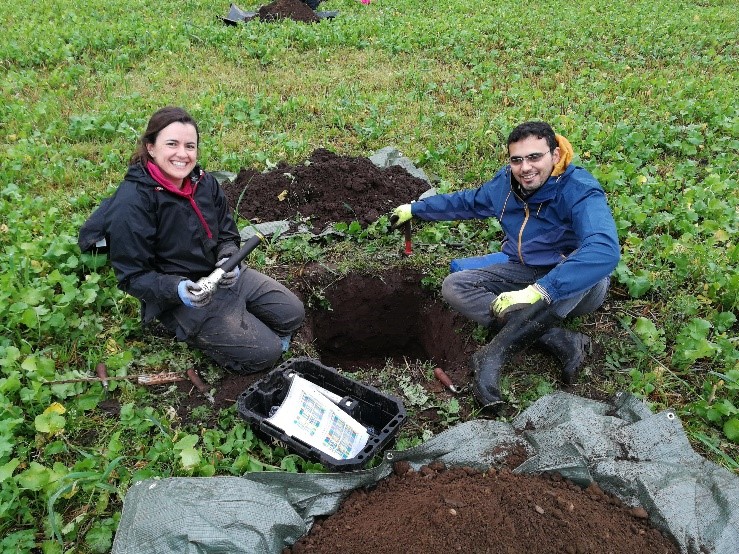Soil fertility in agriculture

Soil fertility, the ability of agricultural soils to sustain crop growth, is essential for the development of sustainable food production systems and is at the center of all research activities in the group.
Soil fertility is usually considered to consist of chemical, physical and biological aspects.
The content of organic carbon in soil is an essential soil property contributing greatly to chemical, physical and biological soil fertility. Many of the research projects have a focus on building soil organic carbon, e.g. by using catch crops, conservation tillage or the application of organic materials such as bio-based fertilisers and biochar.
Furthermore, the optimization of nutrient management in conventional as well as organic cropping systems using organic and inorganic fertilizers and nitrogen fixing crops is pursued to maintain or increase chemical soil fertility. Enhancing nutrient availability and plant use-efficiency from various fertilizers and crop residues is central to this task.
Biological soil fertility aspects are also considered by pursuing understanding of the interactions between key chemical and physical properties and general soil microbial functions or the rhizosphere microbiome to promote beneficial microbial activity and plant productivity.
